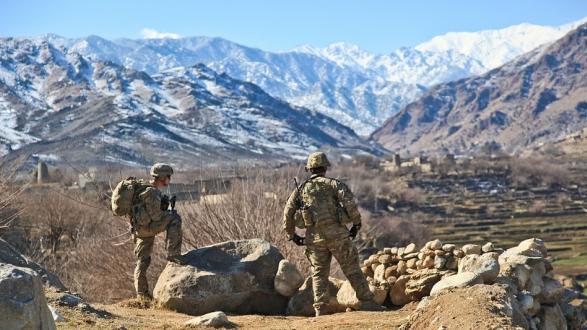The War in Afghanistan Is Not Over
April 13, 2020
The Pacific Council recently hosted a teleconference with Scott Smith of the U.S. Institute of Peace and Vanda Felbab-Brown of the Brookings Institution, and moderated by Thomas Zimmerman of the Pacific Council. They discussed the state of the war in Afghanistan.
Here are key takeaways from the discussion:
- “The hope is that the Afghan government and the Taliban will finalize negotiations for a U.S. withdrawal, but this has proven to be a long process already and may not result in lasting peace,” said Felbab-Brown. She added that the worst outcome for all parties would be a civil war in Afghanistan. If things devolve, there is the risk of the Taliban gaining more power and becoming an interim government.
- Felbab-Brown warned against cutting off $1 billion in humanitarian, economic, and military aid, pointing out that there’s no way the Afghan government can compensate for these losses or come up with substantial funding on its own. Such cuts will paralyze governance and critically weaken Afghan security forces already battered by the Taliban.
- Smith said Afghanistan must improve its institutions. “A successful peace agreement will acknowledge and allow for this,” he said. “Afghanistan needs structural fixes and solutions to improve its elections and their legitimacy.”
- Smith pointed out that although we have not seen any impact yet due to Afghanistan’s late response to COVID-19, the pandemic will slow negotiation processes. For example, arranging for negotiations between the Afghan government and the Taliban in a third party space is now impossible. In the meantime, Taliban forces may attack Afghan forces during this hiatus in the peace negotiation process, which could put the Taliban in a stronger position this summer than they are now.
- “Afghanistan’s neighbors—Pakistan, Chain, Russia, Iran—have been encouraging dialogue for decades, while Afghanistan has dragged its feet to avoid negotiations. China, Russia, and Iran have all made their peace with the Taliban. They may not like them, but can continue regular business with a level of acceptance,” said Felbab-Brown. Smith pointed out that Pakistan, while helpful during the year and a half of this peace process, would be open to having the Taliban play a role in the Afghan government. “Pakistan wants to have influence and the final say in Afghanistan,” he said.
- Smith said the Taliban has never really had international intentions, just national. “They do not have a huge interest in attacks on the United States,” he said. “They actually want and need U.S. assistant in a post-agreement state in which they expect to play a role. The United States needs to look at how much threat profiles have changed since 2001—who are the new actors? There needs to be a re-evaluation of what the real threats are.”
- Smith added that there is a growing bipartisan realization that a huge imbalance has emerged between what the United States has spent on Afghanistan and what it’s worth in the context of the United States’ strategic priorities. “It seems like the United States has signed up to finance a weird unending situation in perpetuity, so there’s no incentive for Afghanistan to find a solution to the conflict. The United States doesn’t want be locked into this forever and is impatient to get out.”
Listen to the full conversation below:
_______________________
The views and opinions expressed here are those of the speakers and do not necessarily reflect the official policy or position of the Pacific Council.




